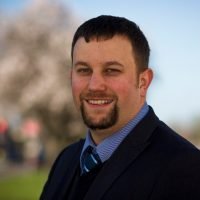The Blame Starts Here

Every Friday, I usually receive a news magazine that I subscribe to; however, a few weeks ago, it did not arrive. For whatever reason, my news and commentary was lost, and as I was busy ferrying kids around, I was not caught up with the news. To get up to speed, I turned to the internet news sites, in the back of my mind wondering why I had not heard any talk of Ed Miliband’s ‘One Nation’ or of course David Cameron’s ‘Big Society’.
I saw the news had just broken about the shooting and death of 12 people at the US naval shipyard in Washington, and that a report was to be published on another child killed by abusive parents in the UK. The question which no-one could answer was ‘Why?’. Inquiries will establish how and what, but no one can really fathom the motive. The question ofwhy is sometimes lost in the hunt for who to blame.
It seems that, far too often, we have a tendency to cast around for a scapegoat, instead of looking to ourselves and asking honestly, ‘What is our role as individuals, as families and as communities?’ The Secretary of State, Ed Balls, declared it one of the most important roles of the state to protect children. This sounds grand and noble, but it adds intolerable pressure on the professionals on the frontline, particularly social workers. It was pointed out to me that the way the safety agenda works in social work – whether that be child protection, or health and safety for home visits – means that it is difficult to work with families as a whole, and can lead to individual interventions and families being broken up. I am well aware that sometimes the best thing for the child is to remove them from their parents. However, as a result, the state takes on a role of nurturing which cannot be performed by an institution; society and the community must have a part to play in keeping children safe. It takes a village to raise a child. In the west, we seem to have tried to find a way around this wisdom. As a parent, I know that I need help and support; but it does not mean I am a failing parent.
To live life to the full, we need community. Many faith-based projects we come across are merely extending this truth in innovative ways. Faith provides so many with a context for community, common beliefs and world view. It is this common familial-ness which is so often the missing piece. And it is surely the missing piece to Big Society and One Nation.



